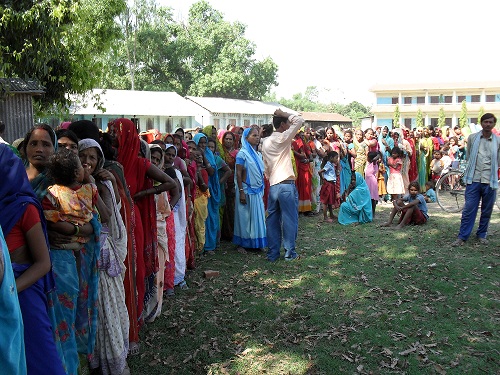
There are many communities in Nepal that have been ignored by mainstream society - marginalized by statistics and demographics that spell hopelessness and despair. SODECS recognizes that whether place-based or constituent focused, these communities contain a wealth of talent, resources, and leadership that remain largely untapped.
The Community Development Team is geared to developing and implementing major initiatives and projects with the potential to improve social conditions; to promote racial equity and multicultural relations; to boost the community members; and to deepen our understanding of capacity-building work in rural communities of Nepal.
The Team is guided by the following strategic goals:
To develop and implement innovative demonstration projects in rural communities so as to leave visible impact on the people and to verify the techniques adopted.
To design and implement major capacity-building initiatives that can enrich the rural community members with adequate qualities for earning a sustainable livelihood.
To widen access to physical facilities in rural areas.
To implement a social work strategy and effective project management systems to strengthen the capacity of both the targeted groups and the organization.
To maximize the participation of the community members in the matters of public concern.
To build the capacity of and stronger relationships among community-based agencies.
To undertake community research to identify assets, issues and opportunities.
To develop and implement new program models to achieve maximum community impact.
Read on to learn more about our work related to Community Development:
Livelihood Support
Capacity Building
Rural Roads
Drinking Water
Livelihood Support
SODECS gives more emphasis on the provision of better opportunities for community members. It provides better opportunities to them by enriching them with sufficient knowledge and skills; and by supporting them in financial matters. It runs Small-Scale Industry Development and Micro Enterprise Development programs to raise the economic level of the people living in both rural and urban areas.
Capacity Building
The Capacity Building Team is assigned for:
Human resource development, the process of equipping individuals with the understanding, skills and access to information, knowledge and training that enables them to perform effectively.
Organizational development, the elaboration of management structures, processes and procedures, not only within organizations but also the management of relationships between the different organizations and sectors (public, private and community).
Institutional and legal framework development, making legal and regulatory changes to enable organizations, institutions and agencies at all levels and in all sectors to enhance their capacities.
Drinking Water
Nepal is a landlocked country with the highest peak in the world. Nature has bestowed her with ample water resources but only 67% of population have access to safe, clean drinking water and remaining have to depend upon the conventional sources like well, lake, river, spring, etc. (Source : District Demographic profile of Nepal- 2002). According to current National Sanitation Policy 2000, around 28,000 children die every year due to water related diseases.
In villages the water supply is usually delivered from the streams and rivers to just a few faucets in the area. Sometimes there is only one main faucet for the village to share, so a queue can form to fill up water jugs (5 gallons or larger) and for yaks to get a drink. A typical family will use about 15 gallons of water a day for basic needs. Improved water points will be paved in concrete and villagers will bring their laundry to lather up and scrub next to the faucet. This is also a good place to bathe a little bit. Water used for washing dishes or washing hands should be treated with iodine for foreigners.
With just a couple of drops for each gallon the water will be sterilized enough to use for any purpose other than drinking. For the regions further west in Nepal the water sources and the rains are not as readily accessible, so it takes a lot more effort to take care of those basic needs. Trekking groups will always camp near streams or the public faucets so they don't have to pack the extra water. In western Nepal the trekking groups must conserve the water supply, since the sources are often up to an hour away, and they have much simpler meals as a result.